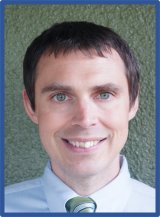Remediating Premise Plumbing Following a Water Emergency or Disaster Webinar
About the Webinar
Originally presented August 10, 2022
A drinking water contamination event, whether Intentional or accidental, may result in human exposure to chemicals, radionuclides, and pathogens. A potential major source of contamination is through premise plumbing in homes and buildings connected to a main water distribution system via service lines. Premise plumbing include various devices used multiple times a day throughout a building such as hot water heaters, showers, sinks and toilets. Remediating such devices after a contamination event is the sole responsibility of home and building owners.
This presentation discussed premise plumbing infrastructure remediation technologies that could assist home and building owners in removing contaminants immediately following a disaster. The webinar includes the impacts of wildfires on premise plumbing and an overview of the full-scale premise plumbing system used to conduct research.
About the Presenters

Dr. Jeff Szabo has worked for EPA’s Homeland Security Research Program since 2005. He conducts and manages water security research projects at EPA’s Test and Evaluation facility. These projects include online water quality monitoring research as well as examining chemical, biological, and radiological contaminant persistence on drinking water and waste water infrastructure and evaluation of decontamination methods. He has a B.S. in Chemical Engineering and a M.S. and Ph.D. in Environmental Engineering, all from the University of Cincinnati and is a registered Professional Engineer in Ohio.

Dr. Helen Buse is a microbiologist with EPA’s Office of Research and Development in Cincinnati, Ohio. Since joining EPA in 2007, her research has focused on understanding the role of free-living amoebae, biofilms, water quality parameters, and operational and engineering aspects in the growth of Legionella pneumophila within drinking water systems. Her current work aims to utilize various treatment technologies to decontaminate and maintain drinking water quality within premise plumbing systems. Helen has a Ph.D. in Microbiology and Immunology from the University of Michigan and a B.S. in Biological Sciences from Carnegie Mellon University.

Dr. Levi Haupert earned his Ph. D. in chemistry from Purdue University where he studied nonlinear optical properties of crystals. His current research interests include modeling ion exchange filter performance and studying transport of contaminants in polymers. He currently works for EPA's Office of Research and Development in Cincinnati, Ohio.
